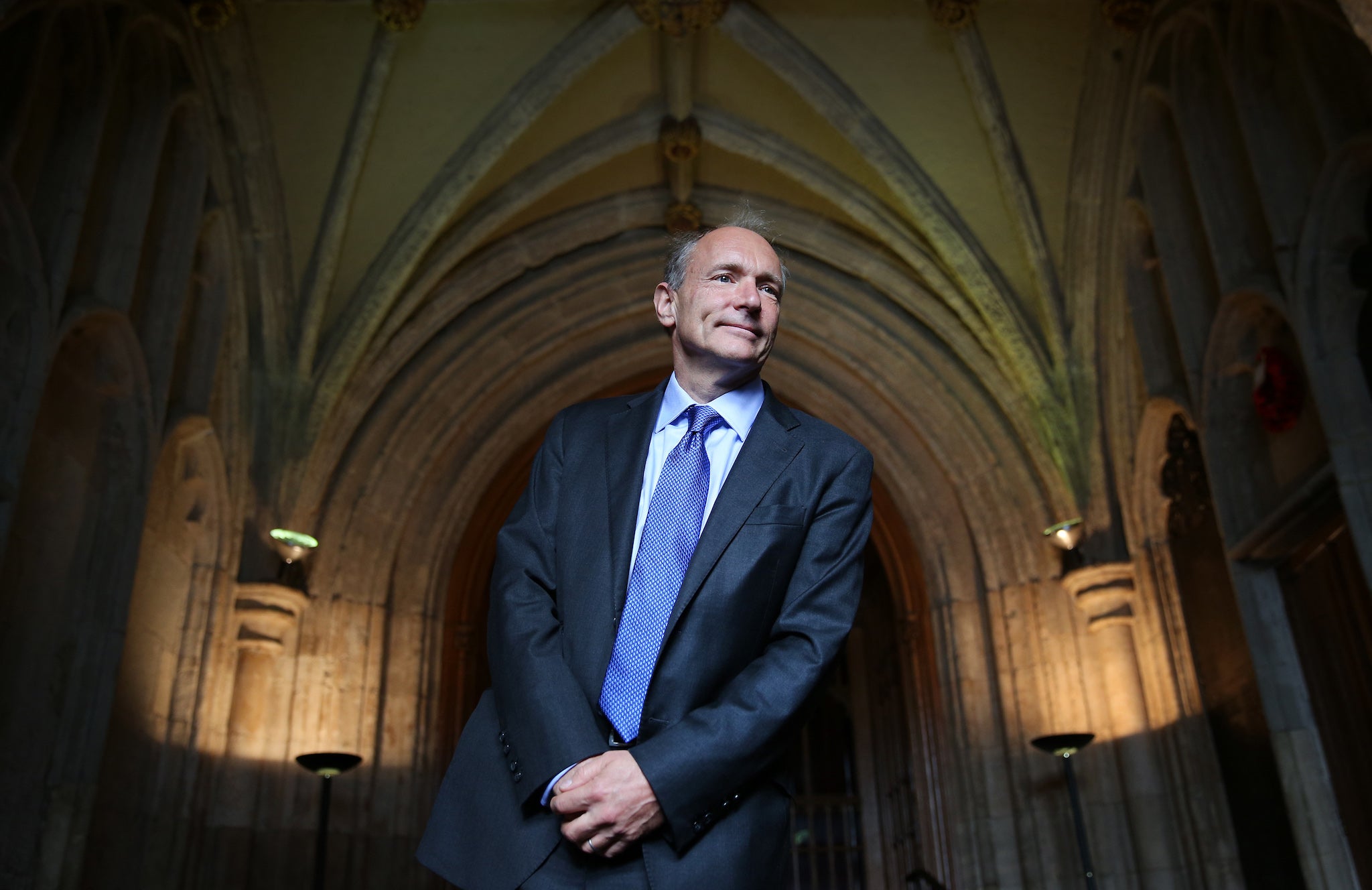Web inventor Tim Berners-Lee to auction the files that helped create today’s internet as an NFT

Your support helps us to tell the story
From reproductive rights to climate change to Big Tech, The Independent is on the ground when the story is developing. Whether it's investigating the financials of Elon Musk's pro-Trump PAC or producing our latest documentary, 'The A Word', which shines a light on the American women fighting for reproductive rights, we know how important it is to parse out the facts from the messaging.
At such a critical moment in US history, we need reporters on the ground. Your donation allows us to keep sending journalists to speak to both sides of the story.
The Independent is trusted by Americans across the entire political spectrum. And unlike many other quality news outlets, we choose not to lock Americans out of our reporting and analysis with paywalls. We believe quality journalism should be available to everyone, paid for by those who can afford it.
Your support makes all the difference.The files that began the World Wide Web will be auctioned as a non-fungible token, their creator Tim Berners-Lee has said.
It will mark a rare moment for the British inventor to raise any money from the code that would go on to develop into the vast technology that powers so much of the world today.
Despite helping create the technologies that underpin today’s connected world, Sir Tim’s work is part of the public domain was released for free.
Now the code itself – which powers the beginnings of the web and its first browser – will go under the hammer as digitally-signed documents that will be sold as an NFT.
An NFT is a limited edition asset which is sold without any physical form via blockchain, effectively providing certification of ownership.
They have been hailed as a way to sell digital artwork and assets.
Sir Tim said it felt like the “natural thing” to do with an entirely digital artefact.
As well as the opportunity to delve into the bare bones of the web’s early architecture, the winning bidder will receive an animated visualisation of the code, a letter written by Sir Tim about its creation, as well as a digital poster of the full code.
Sotheby’s will launch the auction on June 23 for one week, with bidding starting at 1,000 dollars (£708).
Money raised from the auction will be donated to initiatives supported by the computer scientist and his wife.
“Three decades ago, I created something which, with the subsequent help of a huge number of collaborators across the world, has been a powerful tool for humanity,” Sir Tim said.
“For me, the best bit about the web has been the spirit of collaboration.
“While I do not make predictions about the future, I sincerely hope its use, knowledge and potential will remain open and available to us all to continue to innovate, create and initiate the next technological transformation, that we cannot yet imagine.
“NFTs, be they artworks or a digital artefact like this, are the latest playful creations in this realm, and the most appropriate means of ownership that exists.
“They are the ideal way to package the origins behind the web.”
The files include code with approximately 9,555 lines which feature implementations of the three languages and protocols invented by Sir Tim that remain fundamental to the World Wide Web today, known as HTML (Hypertext Markup Language), HTTP (Hypertext Transfer Protocol), and URIs (Uniform Resource Identifiers).
Oliver Barker, chairman of Sotheby’s Europe, said: “The brainchild of one of the most important thinkers that the UK has ever produced, the web is a truly great British invention - one that has gone global in all senses of the word.
“As a company that itself took its first steps in London, and is now making its mark all over the world, we at Sotheby’s could not be more proud to be part of a celebration of this defining moment three decades on.”
Additional reporting by Press Association
Join our commenting forum
Join thought-provoking conversations, follow other Independent readers and see their replies
Comments